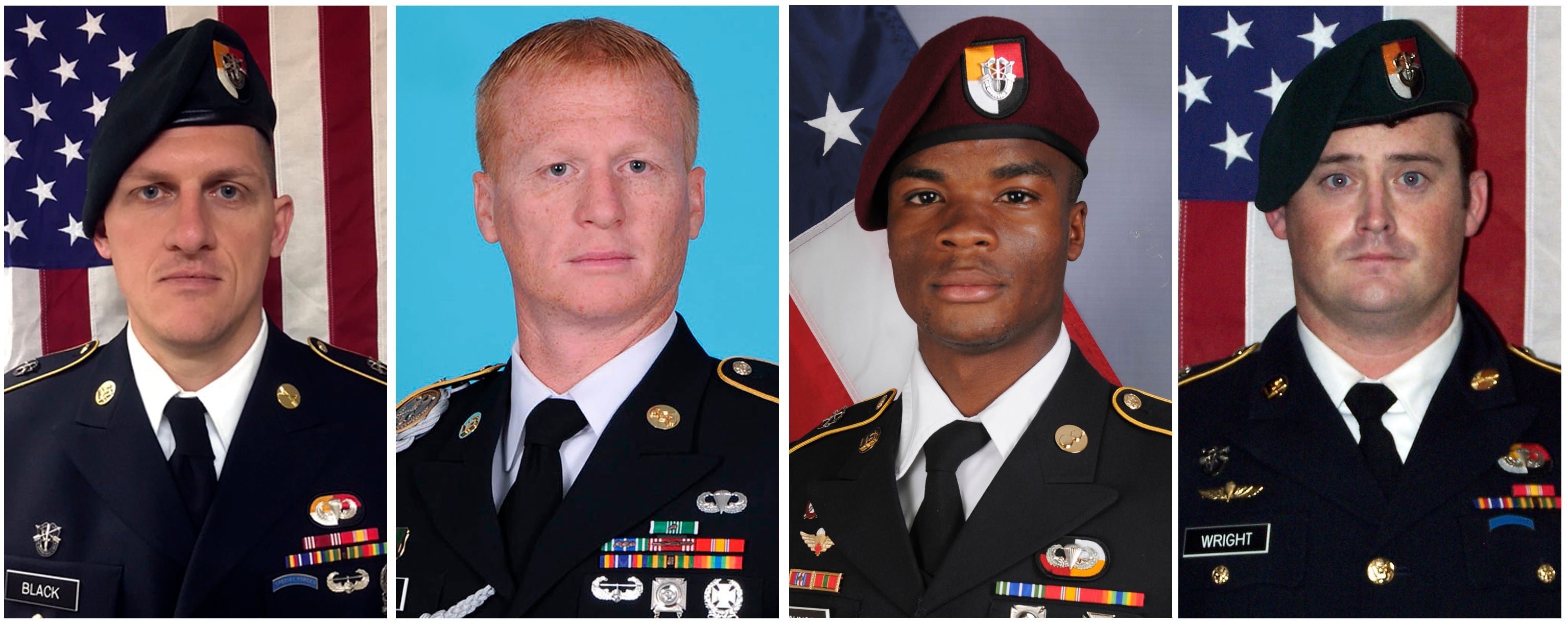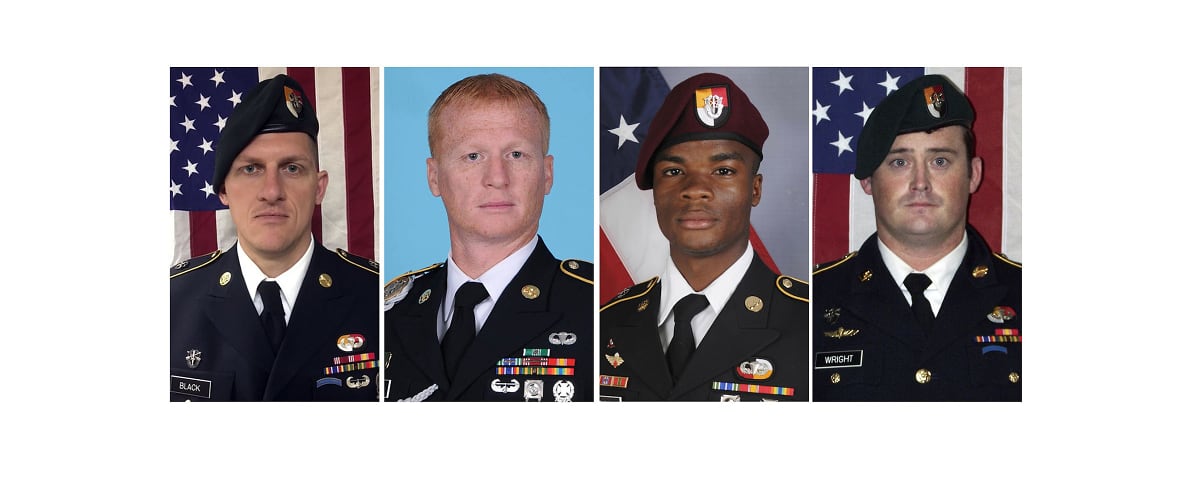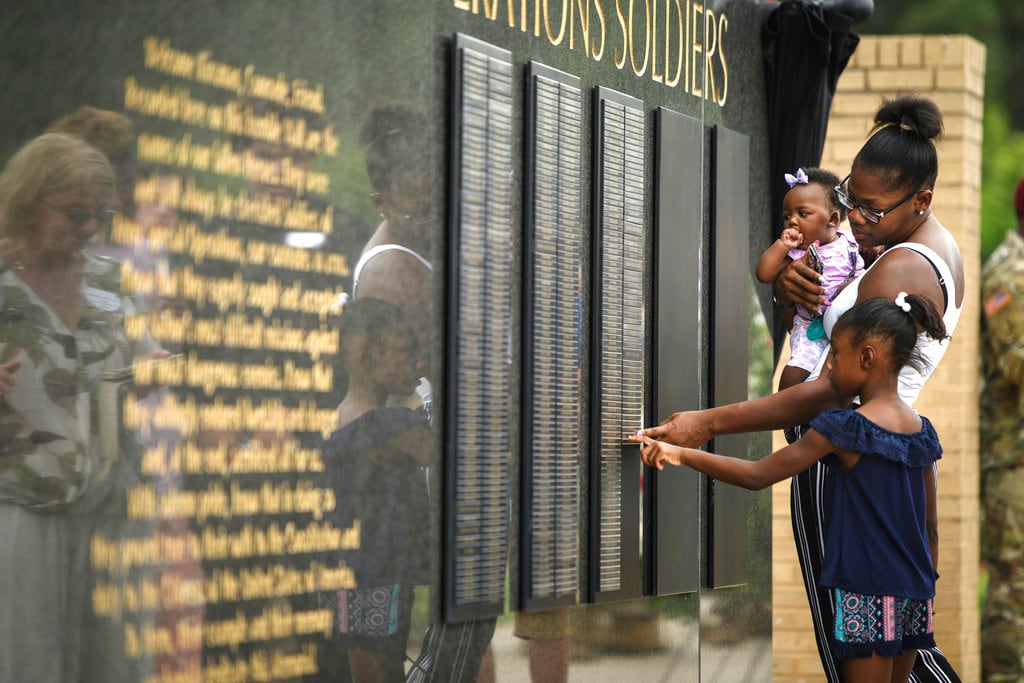Acting Secretary of Defense Patrick Shanahan faced questions about the October 2017 Niger ambush Tuesday, as lawmakers struggled to understand when final decisions on reprimands and awards will be made.
The final report on the ambush, which has been repeatedly delayed, may be forcefully subpoenaed by Congress if the Pentagon continues to withhold its findings, one lawmaker warned.
The awards and reprimands are key to the Niger ambush more than a year later, due to allegations that the military has been attempting to blame junior officers for the failures that led to the deaths of four U.S. soldiers, including two Army Green Berets.
Former Defense Secretary James Mattis convened a review on the ambush that would include recommendations for awards and punishments.
That review was brought to Shanahan when he assumed control over the Defense Department but he did not find it satisfactory, Shanahan told the House Armed Services Committee Tuesday.
“The recommendation was brought to me,” Shanahan said. “I did not find that sufficient so I convened my own review so I can ensure from top to bottom there’s the appropriate accountability.”
Shanahan did not provide a timeline for when his second review would be completed, only saying it would be “soon.”
“I don’t know when that will be complete but I have to assume that much of the work that has been done to date can be used, so by saying ‘soon’ I’m not trying to mislead you," he told lawmakers.
Rep. Ruben Gallego, a Marine veteran who routinely questions Pentagon officials regarding the final Niger report, began the questioning on the subject Tuesday.
“It seems to me we’re going to be placing blame on junior officers and we’re just going to let colonels and general officers just get off the hook,” Gallego said.
Shanahan assured Gallego that wouldn’t be the case, adding that holding senior leaders accountable was the “fundamental reason” for the second review.

Another report on the recommendations implemented following the ambush, as required by the 2018 National Defense Authorization Act, has also not been submitted to Congress.
That report is overdue, Gallego said. “When will this committee receive that?”
Shanahan said he would find an answer to that and report back to Congress later.
“We consistently have this problem where I’m asking about Niger — what happened there, what lessons we learned from it — this committee has not used subpoena power in quite some time," Gallego said. "But if this continues ... I will be pushing for that.”
Gallego added that the families of the fallen troops, the American public and the junior officers facing possibly career-ending reprimands deserve to know what happened and what is being done to prevent a repeat incident.
RELATED

Gen. Thomas Waldhauser, who helms U.S. Africa Command, said on March 7 that changes have been implemented since the ambush within AFRICOM’s area of operations.
“Some of the things we’ve done since the Niger incident have to do with the tactical actions and procedures on the ground, and minimum force requirements," Waldhauser said.
He added that there have been changes to the timelines for casualty and medical evacuations, coordination efforts, overhead armed air support where applicable and aerial intelligence, surveillance and reconnaissance support more generally.
“And then what we’ve been doing recently is we’re now advising them at a higher level, mostly at the battalion level and most of all remotely," Waldhauser said.
The Pentagon has also sought to expand its 127 Echo program — which funds classified programs to use units from African governments as “surrogate forces” in direct action raids and reconnaissance missions.
This is in contrast to other types of missions, in which U.S. special operations assist African forces to accomplish their own objectives, and not those of the Americans.
The 127 Echo program is rarely discussed, but it involves shifting a greater share of the burden of waging war onto local partners, while allowing U.S. troops to retain operational control over missions.
“The small-footprint approach inherent in 127 Echo ... in addition to lessening the need for large scale U.S. troop deployments, fosters an environment where local forces take ownership of the problem,” Maj. Gen. James Hecker, vice director for operations from the joint staff, said during a congressional testimony in February.
Kyle Rempfer was an editor and reporter who has covered combat operations, criminal cases, foreign military assistance and training accidents. Before entering journalism, Kyle served in U.S. Air Force Special Tactics and deployed in 2014 to Paktika Province, Afghanistan, and Baghdad, Iraq.





